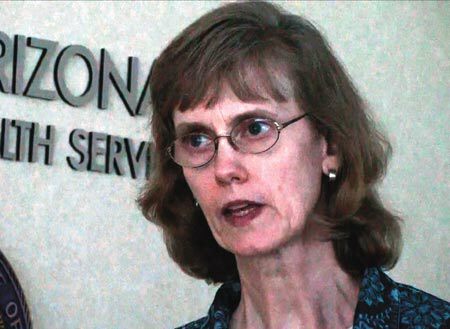A Cronkite/Eight Poll released Tuesday found that 54 percent of those surveyed said they wouldn't get the vaccine against the so-called swine flu when it becomes widely available. Bruce Merrill, a retired Arizona State University professor who oversees the poll, said the main reasons given involved fears about the vaccine's safety.
"They had some concerns over the safety of it because it was rushed into production and not adequately tested," Merrill said in a phone interview.
Abbigail Tumpey, the vaccine safety communications coordinator for the Centers for Disease Control and Prevention in Atlanta, said in a phone interview that those concerns are unfounded.
"We're definitely not rushing this process," Tumpey said. "In fact, because we've done extensive clinical trials and manufacturers have done their own testing as well. We've actually done more to test its safety than for regular flu vaccines in the past couple years." Tumpey said that the public is misinformed about the dangers of the vaccine, which officials say are minimal.
"People look at this like, 'If I don't get the vaccine, I forgo all risks,'" she said. "In actuality, people who don't get this vaccine are at risk ... for getting H1N1."
She added that there is no scientific data to support the idea that the H1N1 vaccine is less safe than the regular one.
CDC spokesman Tom Skinner said he empathizes with those who are skeptical.
"I think we're fully aware that the public has concerns about the safety of the vaccine," Skinner said. "And that's understandable when there's this much misinformation about the safety of the vaccine out there."
Lewis said state health officials are trying to put the public's fears to rest by talking to educators, the media and the general public about how vaccines work and what the risks really are.
"You just give your information to the people and let them make their best decision," she said.
Places with information on H1N1 flu strain, vaccine
By Cronkite News Service
Here are places to find information about the H1N1 virus and
vaccine:
- Centers for Disease Control and Prevention H1N1 Site:
www.cdc.gov/h1n1flu/vaccination
- Arizona Department of Health Services Flu Information Site:
www.azdhs.gov/flu
- ADHS Hotline for Immunization Information: (602) 364-3630
